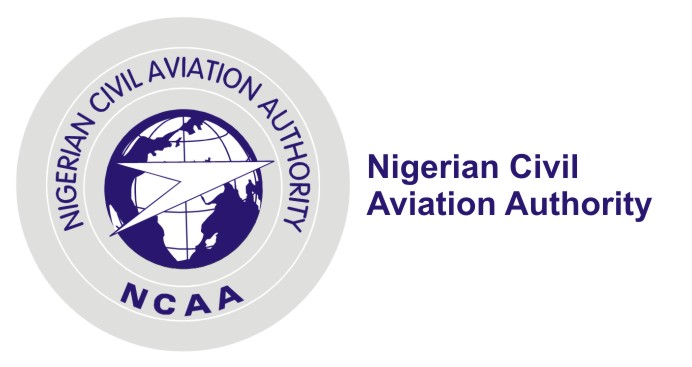Business
Aviation 2020: A Battle For Survival

The Nigerian aviation sector in 2020 could be likened to a town ravaged by war with wanton destruction of lives, infrastructure and economy, that will take some time to rebuild. Although the sector started on a good footing in the beginning of the year, the outbreak of the Coronavirus pandemic in the first quarter of 2020 caused the industry an unimaginable setback.
The Coronavirus pandemic, otherwise known as COVID-19, came like a flood, which suddenly broke down all facets of operations in an already flourishing sector, leaving negative imprints that stakeholders are still battling to tackle.
Prior to the outbreak of COVID-19, the Nigerian aviation industry was in steady throttle, ranging from the certification of Abuja and Lagos airports, and the move to also certify the Port Harcourt International Airport and others.
Also, in the later part of 2018, the international terminal of the Port Harcourt Airport was commissioned, and the reconstruction work on the runway of the Akanu Ibiam International Airport, Enugu was awar-ded in August, 2019, all geared towards full operations in 2020.
Generally, the aviation sector in the country was full of activities, with efforts being made to upgrade infrastructure in most of the major airports in the country. From January to the middle of March, airports became a beehive of activities, while travelling by air became the delight of many Nigerians, especially when compared with road transportation that has almost become a nightmare due to deplorable roads and general insecurity.
But that was how far the aviation sector could go in 2020. The once bubling sector suddenly began to witness a terrible downturn in operations as soon as the COVID-19 started to rear its ugly head. The total closure of all the nation’s airports for a period of about six months by the Federal Government in an effort to check the spread of the pandemic was the climax of the misfortune in the aviation industry.
Although all the nation’s major airports are now open to operations, there is still a lull in the activities of airlines.
The Managing Director of the Federal Airports Authority of Nigeria (FAAN) Capt. Rabiu Yadudu, in the build up to the reopening of the nation’s airports, in line with the agency’s core values of safety, security and comfort of passengers, held a Skype meeting with Munich Airport International to share experience and compare notes on the effects of the COVID-19 lock-down on the airports.
The aim was to assess the readiness of FAAN to gradually begin operations, following the Federal Government’s directive for reopening of the four regional airports.
The FAAN boss said, “While FAAN is responding to the guidelines set by the NCAA for gradual airport reopening during the COVID-19 pandemic period, it is important to also compare notes with other airports in the world to make sure that we are on the right track, and join the global industry in building back travel confidence.
“Munich Airport has successfully reopened it’s airport and has recommended domestic and international flights, so it is worth sharing their experience with them”, Yadudu said.
Though there are guidelines issued by the International Civil Aviation Organisation (ICAO) and Airports Council International (ACI), for the purpose of reopening, the guidelines would become more successful if they are adopted based on the peculiarities of the airport environment.
At the Port Harcourt International Airport, for instance, the reopening for flight operations was greeted with numerous challenges, as many restrictions and procedures were introduced, thus raising a lot of dust and questions among stakeholders and airport users.
The negative effects of COVID-19 on airline operations brought about the issue of difficulty in the payment of staff salaries by the airlines. The maintenance of aircrafts became a major challenge with threats of sack of workers still in contention.
FAAN is not exempted. The Authority is battling with the payment of its staff salaries, which was quite unusual in the history of the agency. This has even led to a pocket of protests by its workers.
In one of the interviews granted to The Tide by the FAAN’s Head of Public Affairs at the Port Harcourt International Airport, Mr Kunle Akinbode, he admitted that lack of funds made individuals, including staff of FAAN, to contribute money for the procurement of items required to meet the COVID-19 standard protocol for the reopening of the airport.
The situation also made the airport authority to look inward to reconsider its system of revenue drive, which led to the unusual constitution of a revenue committee to recover monies being owed FAAN.
Akinbode, in the interview, said that there had been airlines that owed FAAN, but did not pay before liquidation, adding that FAAN had decided to wake up.
“FAAN had been relaxing in the collection of debts. These concessionaires look at FAAN with the idea that it is government business, so we have decided to wake up, maybe because of pressure from COVID-19”, he said.
Looking at the turn of events in the aviation industry in the country in the last one year, compared to the previous years, it is obvious that the sector faired roughly in 2020.
The concessionaires and airlines now go through tough times in operations, as cost of maintenance, repairs and overhaul of aircrafts are in hard currency, with the value of naira continuously depreciating against the dollar.
Rather than employing, airlines are contemplating retrenchment of workers; rather than acquiring more fleets of aircrafts, airlines are battling with aircrafts maintenance and how to settle the debts owed FAAN, obviously due to paucity of funds.
This informs why the airlines have jacked up their flight ticket prices by 300 per cent within the last two months in order to cushion the effects of almost six months of non operation.
There is no gainsaying the fact that 2020 is one of the worst years for the Aviation sector, no thanks to the Coron-avirus pandemic. The situation will, therefore, require proactive steps and efforts on the part of both the government and airline operators to reinvigorate the sector. Such steps will include granting bail-out to airlines by the government, and if inevitable, a merger of some airlines to save them from total collapse.
By: Corlins Walter
Business
Lokpobiri Condemns Abandoned Refinery Project in N’Delta … Vows Revival
Business
FG Unveils Industrialisation Strategies In 2025 … To Conduct MSMEs Census
Business
Coy Strengthens Commitment To Nigeria’s Energy Future
-

 News4 days ago
News4 days agoFubara Attends PDPGF Meeting In Asaba …..Back Court Verdict On National Secretary Position
-
Nation4 days ago
Okehi Clan Demands Recognition, Upgrade Of Chieftaincy Stool
-
Business2 days ago
PETROAN Accuses Crude Oil Producers Of Diverting 500,000bpd Refineries-Bound Product
-
Business4 days ago
REA, RESCOs Sign Agreement To Establish 23 Mini-grids
-
News2 days ago
MAN Warns Against Further Hike In Electricity Tariff
-
Sports2 days ago
W’Cup: Eagles Get Dates for Rwanda, Zimbabwe Qualifiers
-
News4 days ago
Telecom Operators Dismiss Talks With NLC On Tariff Hike
-
Politics4 days ago
How Akande Lied Against Me Over Bola Ige’s Case – Ladoja

